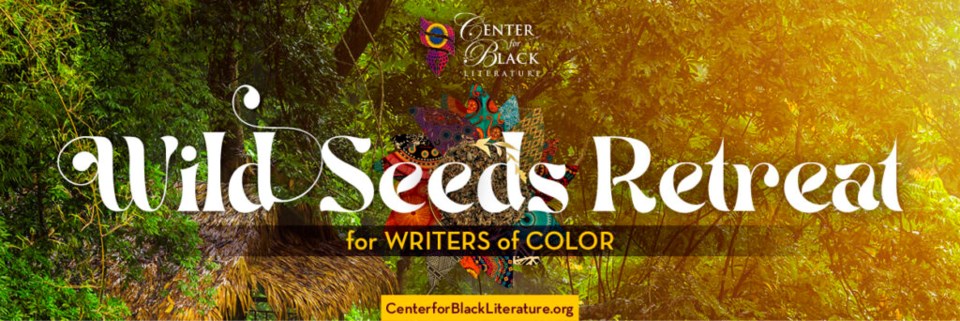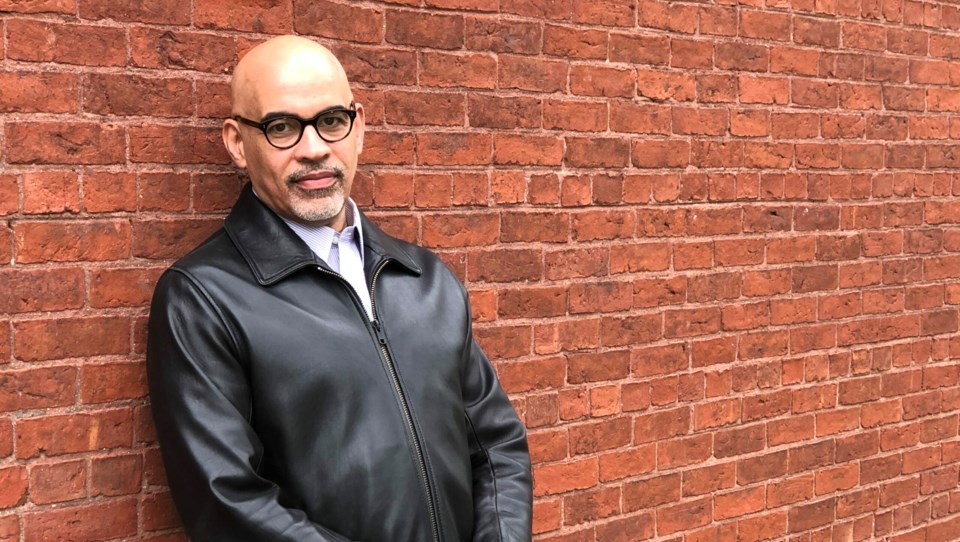New York State Poet Laureate Willie Perdomo will serve as an instructor at the upcoming Winter 2023 Wild Seeds Retreat for writers of color in Brooklyn. The acclaimed poet, who is a Harlem native, currently is the Poet Laureate of New York State, appointed to a two-year term in 2021.
Perdomo’s most recent book, “Smoking Lovely: The Remix” was published in 2021 by Haymarket Books. He is the winner of the Foundation for Contemporary Arts Cy Twombly Award for Poetry, the New York City Book Award in Poetry, the International Latino Book Award and the PEN Open Book Award. Perdomo currently teaches at Phillips Exeter Academy.
First held in 2004, the Wild Seeds Retreat is a four-day retreat for writers of color hosted by the Center for Black Literature. The retreat will take place at Medgar Evers College in Crown Heights, from February 23–26, 2023. Wild Seeds is seeking aspiring writers 21 and up at all stages of their writing journey.
Novelist Kia Corthron will join Perdomo as an instructor for the retreat. The two will provide personalized guidance and feedback to writers participating in the retreat's workshops.

BK Reader caught up with Perdomo to discuss the upcoming retreat, his own writing process, and why retreats like Wild Seeds are important for up-and-coming writers.
BK Reader: What exactly is the Wild Seeds Retreat?
Willie Perdomo: It's a space where writers from the diaspora, mainly writers of color, can come and talk about and explore new ways of approaching their work from the space of their identity. And, it's a special sort of dynamic, because you are surrounded by other writers of color, which probably means that there's not a lot of explanation of nuances and references that you might need to make while you're not in that type of space.
BKR: What is the environment of the retreat like?
WP: Every workshop is different. So, you never want to prescribe a set dynamic for a workshop, but there are some guidelines that come with it. And one is that it's an exploratory space. It's a safe space. It's a critical space. And it's a space where you need to be able to take risks that might open up a different way to look at the way writers approach poems, lines, the sound of a poem. Sometimes it's as simple as the permission to write about your own neighborhood, whereas that might have been denied in other spaces.
BKR: When did you know you wanted to be a writer?
WP: It was around college, and I started to write poems. The track was pretty definitive for me. By that point, there was nothing else that I really wanted to do, except write and teach. The teaching came a little later. So, I went out into the world, I left school to become a writer and to live and gain the experiences that you think that you need to be a writer. But I had started taking it seriously in terms of, you know, teaching myself about the Harlem Renaissance and Black Arts Movement in New York, the Nuyorican Poets Café and other various schools and traditions and lineages.
BKR: When do you personally find time to write?
WP: Usually in the mornings or early in the morning these days because I teach full-time and weekends during break. So, it's really a practice. When you have a teaching life there needs to be space made for your dreams. And those dreams need to be written down and deconstructed, examined, analyzed. And when I say dream, I'm talking about the imaginary more so than anything that happens during our sleep mode, even though that's important too. And that space is a quiet space for me usually in the morning. So, I take about an hour a day to work on something. And it always helps me to work on something specific, so that I keep coming back to it. But I'm not averse to sort of scratching away in a notebook and kind of seeing what pops up and not putting too much pressure on myself.
BKR: What kind of writers is the retreat hoping to attract?
WP: I think it's always cool to encounter a writer at the beginning of their writing life, or an emerging sort of poet. Ideally, you have a mix, emerging poets, established poets, people who’ve never written poems ever, a generational sort of mix. You know, there's so many types of combinations of workshops that I've experienced when it comes to gender and race and ethnicity and spirituality and religion and cultural practices. And you really want all that to come to the table.
BKR: Why are retreats like Wild Seeds important?
WP: When a writer comes to a workshop, and they've probably reached an impasse, they've reached a block, the workshop is there to open up that impasse. To sort of create intersections to think about different directions that you can go on based on what the potential of the poem that has been submitted. So, these spaces more than anything, are spaces of discovery, I think. And that's probably the biggest bonus of attending a retreat like the Wild Seeds Retreat.
*Questions and answers have been abridged for clarity.
You can apply for the Winter 2023 Wild Seeds Writing Retreat Here. Applicants must be over 21 years of age and submit their application by Tuesday, January 17, 2023. Tuition for the program is $500.




